When it comes to purchasing food-grade lubricants, businesses have a variety of options ranging from small containers to large barrels and industrial bulk containers (IBCs). While the latter options - buying in barrels or IBCs - may not be suitable for every operation, companies with high lubricant usage can unlock significant advantages by opting for larger volumes.
From cost savings to environmental benefits and factory floor optimisation, bulk purchasing can be a game-changer for industrial operations, particularly those in the food and beverage industry where stringent standards must be met.
1. Cost Savings
One of the most compelling reasons to buy food-grade lubricants in bulk is the potential for substantial cost savings. Here's how:
Lower price per litre: Purchasing lubricants in smaller containers like cans or jugs tends to incur higher per-unit costs due to packaging, transportation, and handling fees. Barrels or IBCs, on the other hand, offer significant savings on the price per litre, as suppliers pass on lower production and logistical costs.
Reduced procurement frequency: Ordering larger quantities reduces the frequency of lubricant purchases, lowering administrative costs and streamlining supply chain management. Fewer purchase orders, delivery arrangements, and associated paperwork can save companies both time and money.
Volume discounts: Many suppliers offer additional price breaks for bulk purchases. By investing in large quantities upfront, companies may qualify for discounts that make bulk purchasing even more cost-effective over time.
2. Environmental Benefits
Sustainability is becoming increasingly important in modern business operations, and purchasing lubricants in bulk can have tangible environmental benefits. Companies focused on reducing their carbon footprint will find several reasons to make the switch:
Reduced packaging waste: Smaller containers generate significantly more waste, including plastic jugs, metal cans, and other packaging materials. Bulk containers like IBCs and barrels drastically reduce the amount of packaging used, lowering the overall waste footprint.
Fewer transportation emissions: Bulk orders lead to fewer shipments, resulting in lower transportation-related emissions. This aligns with global efforts to cut down on carbon emissions, as reducing the frequency of shipments can play a role in lessening the environmental impact of logistics.
Reuse and recycling: IBCs are designed for reuse, and many are made from materials that can be recycled at the end of their lifespan. Once empty, they can either be cleaned and refilled or recycled into new containers, helping businesses comply with waste reduction and sustainability initiatives.
3. Factory Floor Optimisation
Efficient factory operations are essential for maintaining productivity, and buying lubricants in bulk can help improve the way lubricants are stored, handled, and applied in industrial settings. The larger volumes allow for dedicated systems that improve operational efficiency and cleanliness:
Optimised storage solutions: Storing lubricants in large containers allows businesses to better organize their factory floors. Barrels and IBCs can be stored in dedicated lubricant storage areas away from production zones, freeing up valuable floor space for other activities.
Dedicated filling stations: Rather than manually pouring from small containers, bulk purchasing allows companies to install centralized lubricant dispensing systems. Applicators can be filled from these stations, which reduces the risk of spills and contamination while streamlining the application process. This also ensures the lubricants are handled in a clean, food-safe environment, preventing contamination during filling.
Inventory control: Managing inventory is easier with larger containers. Companies can track lubricant levels more accurately, reducing the likelihood of running out or over-ordering. Automated inventory systems can be integrated into large containers, providing real-time data on lubricant levels.
4. Minimised Contamination Risk
In food-grade lubricant applications, hygiene is paramount. The more times lubricants are handled or transferred from one container to another, the higher the risk of contamination. Bulk purchasing minimises the number of times lubricants are exposed to the environment or come into contact with workers, reducing contamination risks. When paired with dedicated lubricant filling systems, these large containers ensure that the product stays clean and safe, protecting both machinery and food production processes.
5. Custom Solutions for Specific Needs
For companies with specialised equipment or unique production needs, suppliers often offer custom lubricant solutions for bulk buyers. This can include tailored blends, additive packages, or formulations specifically designed for a company's operational requirements. Bulk buyers often receive personalised service, enabling them to optimize their lubricant use further, resulting in extended equipment life and improved performance.
6. Enhanced Compliance with Regulations
The food and beverage industry is subject to strict regulatory standards regarding the use of lubricants, and ensuring compliance can be more straightforward when purchasing in bulk. Larger containers often come with improved labelling and documentation, making it easier to track usage and demonstrate compliance with food safety regulations. This helps businesses avoid potential fines or penalties for non-compliance.
Conclusion
While bulk purchasing of food-grade lubricants in barrels or IBCs may not be for every business, those with the volume requirements to justify it stand to gain numerous advantages. From cost savings and environmental benefits to improved factory floor efficiency and minimized contamination risk, purchasing in bulk can significantly improve operational performance. For companies committed to sustainability, cost-efficiency, and maintaining high hygiene standards, making the switch to bulk lubricant purchases can provide long-term value, offering both financial and environmental rewards.
Ask us about Activate food grade lubricants in bulk barrels and IBCs by filling in the form below ↓









